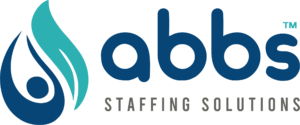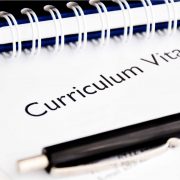What your social media presence says about you
What you do on social media has the power to help, or severely hinder, your chances of a job interview. Three quarters of recruiters have looked up potential candidates on social media, according to the Guardian Jobs Recruiter Survey 2015. Of those who said yes in the Guardian Jobs survey, LinkedIn was the most popular channel (96% used this), followed by Facebook (56%), Twitter (41%) and Instagram (7%).
Here, the experts give their advice on how to approach your social media presence in a way that helps – rather than hinders – your job prospects.
Beware of online rants and outbursts
Social media allows people to reach instantly to situations, sharing their thoughts with an audience of anonymous listeners. Thanking a company or shop for treating you well or for going the extra mile spreads good cheer and thankfulness and has a positive impact, but ranting about your employer who made you stay late twice this week is spreading a negative message, points out Nicola McGuane, a consultant at recruitment firm Morgan McKinley. “Remember the six degrees of separation theory; everyone and everything is six or fewer steps away, by way of introduction, from any other person in the world, so it’s highly likely that your employer will find out about your online rant.”
Privacy settings can only do so much
Using the strictest privacy settings on social networks like Facebook is a good start, but it doesn’t guarantee to keep your profile away from a potential employer’s eyes. “The world has become a much smaller place and you never know who your future boss is connected to, allowing them to see your activities,” warns McGuane. For that reason, it’s worth keeping your social postings on the tame side so that future employers don’t misjudge you, she says. “Some job seekers are known to suspend or delete certain social media accounts during their job seeking. It may sound drastic but it’s worth it to secure your dream job.”
Google yourself and consider your digital footprint
Search your name, just like a potential employer might do, to see what comes up. Is it good or bad? Put yourself in the shoes of the recruiter. They will be asking questions such as, “Is this someone I would like to work with knowing what they publicly post online?”
It’s also important for candidates to realise that every “like”, comment, status update or photo posted online – whether it’s on LinkedIn, Facebook, Twitter or Instagram – leaves a mark on their digital footprint. “This digital footprint allows a potential employer to trace/track your online activity and get a sense of your character which could impact you positively or negatively,” says McGuane.
Think about photos
Photos are a big element to consider when you see what your search trawls up. “I’ve come across several dodgy photos, even on professional social media sites such as LinkedIn,” says recruitment professional Kate Croucher, FDM Group’s university relationship manager.
Candidates need to keep in mind that your visible photos across social media accounts make a first impression before you’ve even met a potential employer or recruiter – and that can help and hinder you.
“If in doubt, delete or suspend any social media account where the content could be deemed as damaging to your job search,” adds McGuane.
Use social media to showcase your knowledge
Use social media as a means to showcase your knowledge and thought leadership through publishing articles and blogs on your LinkedIn profile, says Charles McIntosh, head of talent consulting at recruitment firm New Street.
Professor Vlatka Hlupic, director of the executive coaching and leadership development programme at Westminster Business School, agrees: “Strategically developed LinkedIn feeds with carefully written profiles, professional photos, good recommendations and endorsements could be a very valuable tool for securing job interviews and employment.”
Build networks and demonstrate confidence
Social media can be used to build professional networks and demonstrate confidence, Hlupic points out. “Keep growing your networks, connect with new relevant contacts continuously, share relevant posts and articles (both written by you or others), join professional groups, participate in discussions and most importantly, enjoy networking.”
Effective social media use can also reveal a lot about a person’s confidence, adds Croucher. “If they are sharing lots of interesting things, and making insightful comments or forming strong opinions, and interacting with others in a positive way, it shows their ability to rally people behind them and develop effective relationships.”
Written by Kirstie Brewer – Sourced from: https://jobs.theguardian.com/article/what-your-social-media-presence-says-about-you/






